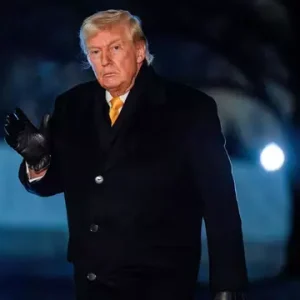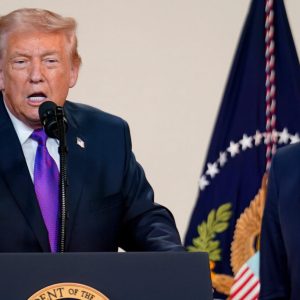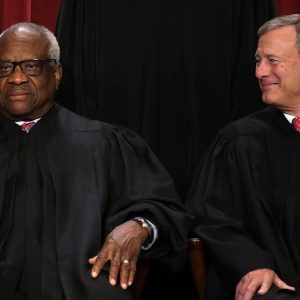Missouri Democratic Representative Bill Clay Sr., the first Black congressman from the state, passed away on Thursday at the age of 94 after an illustrious career spanning 32 years in the U.S. House of Representatives. Clay represented Missouri’s 1st congressional district from 1969 to 2001, establishing himself as a tireless advocate for civil rights, workers’ rights, and the advancement of St. Louis in the aftermath of “white flight.” Known for his skill in negotiation, Clay brokered agreements with construction trades and corporate leaders to reshape the city’s infrastructure and skyline, cementing the transformation of St. Louis into a modern urban hub anchored by its iconic Gateway Arch. His influence extended beyond the city, as he wielded significant political clout within the Democratic Party, often demanding loyalty from those who sought his endorsement while shaping the careers of emerging politicians.
Clay’s political roots stretched back to his early involvement in local governance, reflecting a lifelong commitment to civil rights and community empowerment. In 1959, at just 28 years old, he won election to the St. Louis Board of Aldermen, positioning himself as a leader during a period of widespread racial segregation and social upheaval. The city, like much of the United States at the time, was deeply divided along racial lines, and Clay emerged as a prominent voice in the fight against systemic discrimination. He actively participated in sit-ins and protests, challenging segregationist policies at businesses including White Castle and Howard Johnson, which enforced separate seating and lodging for Black and white patrons. Through these early acts of leadership, Clay built a foundation for his later congressional career, demonstrating a consistent commitment to justice, equity, and the empowerment of historically marginalized communities.
Clay’s congressional tenure coincided with a transformative period in American history, including the enactment of the Civil Rights Act of 1965. He became a central figure in efforts to secure political representation for Black St. Louisans, who were seeking to capture power in a city long shaped by discriminatory practices such as redlining. Clay was instrumental in fostering an environment in which Black residents could influence local governance, economic development, and urban renewal. As his son, former Congressman Lacy Clay, noted, the Black community regarded him as a fighter for their rights, someone who leveraged political influence to deliver tangible improvements for St. Louis residents. This legacy of advocacy extended to labor rights, economic equity, and the promotion of inclusive city planning, reflecting Clay’s holistic approach to public service.
Throughout his congressional career, Clay was an architect of enduring national legislation that reflected his commitment to social and economic justice. Among his legislative achievements, he played a significant role in advancing the Family and Medical Leave Act and in efforts to raise the federal minimum wage, policies that have had lasting impact on millions of Americans. Additionally, Clay co-founded the Congressional Black Caucus in 1971, an organization that has grown into a powerful collective of Black legislators advocating for equity, civil rights, and public policy reforms. By mentoring future generations of Black lawmakers and fostering political networks within the Democratic Party, Clay ensured that his work would resonate far beyond his own tenure, helping to establish a pipeline for leadership that continues to shape American politics today.
Following his passing, prominent political figures and community leaders paid tribute to Clay’s extraordinary career and influence. St. Louis Mayor Cara Spencer highlighted Clay’s “courageous legacy of public service” and his legislative contributions to the poor, underrepresented, and disenfranchised. Congressman Wesley Bell described Clay as a “giant” whose mentorship and example shaped his own approach to governance. The Congressional Black Caucus lauded Clay for leaving behind “a legacy of dignity, courage, and transformative impact,” emphasizing the foundational role he played in fostering Black leadership at the national level. Similarly, Michael P. McMillan, president and CEO of the Urban League of Metropolitan St. Louis, reflected on Clay’s profound influence on local and national initiatives, underscoring his role as a civil rights pioneer and legislative innovator whose impact will endure for generations.
Clay’s life and career embodied the intersection of local advocacy and national influence, illustrating how committed leadership can transform both a community and the broader political landscape. From his early efforts to challenge segregation in St. Louis to his decades-long service in Congress, Clay demonstrated unwavering dedication to civil rights, economic justice, and the empowerment of marginalized populations. His legislative achievements, mentorship of future leaders, and role in shaping the Congressional Black Caucus cemented a legacy that extends well beyond Missouri. As the city and nation reflect on his contributions, Clay is remembered not only for his accomplishments but for the values he championed—equity, justice, and opportunity—which continue to inspire lawmakers, activists, and citizens alike. The impact of his career remains embedded in St. Louis’ development, in national policy achievements, and in the generations of Black leaders who have followed in his footsteps, carrying forward the principles for which he tirelessly advocated.





